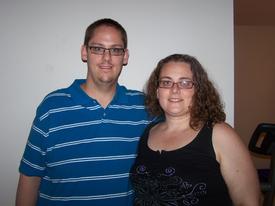HRM and strength training

Smuterella
Posts: 1,623 Member
i have been reading today that HRMs aren't accurate for strength training calorie burn.
So, I'm doing Power 90 Sculpt and my HRM is telling me I burn around 250 calories in that roughly 30 minute time span. I am getting sweaty and my heart rate is elevated so.... is that burn possible?
I am concerned as my plan was to eat those 250 back...
So, I'm doing Power 90 Sculpt and my HRM is telling me I burn around 250 calories in that roughly 30 minute time span. I am getting sweaty and my heart rate is elevated so.... is that burn possible?
I am concerned as my plan was to eat those 250 back...
0
Replies
-
I am interested to hear other opinions but my gut feeling is that 250 from 30 mins is on the high side (although I have no idea what Power 90 Sculpt involves).
I do 45 mins of Strength training (based on Madcow's 5x5; so squats, deadlifts and the like) and MFP gives me 150 cals if I log it under cardio.
To be honest, 150 feels about right but I have nothing scientific or measured to back that up.0 -
I always go by my HRM bc it has all of personal information my Vo2 levels height weight etc.0
-
Bump! Would love to know... Especially as I try to do my strength training explosively, I breathe heavy, get really sweaty and HR high... I do them like a circuit with no "rest" in between but alternating muscle groups used...0
-
bump0
-
Why do you think HRM aren't accurate for strength training? The monitor is based specifically on the statistics you put in about yourself: height, weight, activity level, male/female etc. I go by my HRM for calorie burn weather it's cardio or strength.0
-
My opinion is to go with what your HRM says since it's tailored to your specific heart rate. I've learned that MFP has grossly underestimated the amount of calories that I burn doing certain things, while other activities seem to be estimated quite high. If given the opportunity to log calories burned based on your HRM, go with that.0
-
I found MFP to be way under what I was actually burning when I used my HRM. Like 189 calories in 20 mins compared to 242 calories in 20 minutes.
It's based upon my heart rate, height, weight and age so I'd say it's more accurate then MFP.0 -
I use the calories burned number from my HRM and have lost weight using that number. I think it's considerably more accurate than MFP. BTW I burn right around 500 calories an hour in the gym doing weights.0
-
i have been reading today that HRMs aren't accurate for strength training calorie burn.
So, I'm doing Power 90 Sculpt and my HRM is telling me I burn around 250 calories in that roughly 30 minute time span. I am getting sweaty and my heart rate is elevated so.... is that burn possible?
I am concerned as my plan was to eat those 250 back...
Where did you read that?0 -
i have been reading today that HRMs aren't accurate for strength training calorie burn.
So, I'm doing Power 90 Sculpt and my HRM is telling me I burn around 250 calories in that roughly 30 minute time span. I am getting sweaty and my heart rate is elevated so.... is that burn possible?
I am concerned as my plan was to eat those 250 back...
Can you please post some of the links you have been reading...I was wondering about the same thing and I couldn't find any definitive answers. Thanks.0 -
I found MFP to be way under what I was actually burning when I used my HRM. Like 189 calories in 20 mins compared to 242 calories in 20 minutes.
It's based upon my heart rate, height, weight and age so I'd say it's more accurate then MFP.
I find this also, HRM, machine total & MFP total. I go by my HRM since it goes by my heartrate.0 -
Inclined to go with this but understand most HRMs don't take into account VO2 max, RHR, Max HR, RHR Variability and general activity level. Also "strength" training is a very open ended type of exercise in terms of effort level. I like to do mine a little bit crossfit style so very intense and none stop and knackering and with cross train sprints in between as a blood shunt to get my HR high!I always go by my HRM bc it has all of personal information my Vo2 levels height weight etc. 0
0 -
bump0
-
bump, also interested0
-
I just "googled" it because I was curious as well - one of the very first links that came up was from sparkpeople.com:
"A heart rate monitor (HRM) is capable of estimating calorie burn pretty accurately—but only for aerobic (cardio) exercise, not for strength training. Here's why:
A HRM won't give you an accurate idea of how many calories you burn during strength training, because the relationship between heart rate and calorie expenditure is not the same during strength training as during cardio exercise, which is what the HRM's estimate is based on. Unless your weight training is very vigorous circuit training, the heart rate monitor will be overestimating your calorie burn by a fair amount.
The problem is a technical one. Calorie burning isn't determined by heart rate, it's determined by the number of muscle cells that are activated to perform a given activity. It's the working cells that actually use the energy (calories) and consume oxygen. When working muscle cells need more energy and oxygen, your heart rate goes up to deliver these things to the cells via the blood stream.
Any muscle that performs a high intensity or maximum effort (strength training) will trigger an increase in heart rate and blood flow. But if only a single muscle group is on the receiving end to utilize that extra oxygen (doing a strength exercise that isolates your biceps, for example), only a relatively small amount of oxygen (and calories) will actually be consumed.
So while a series of strength training exercises may elevate your heart rate like aerobic exercise does, you're not actually using as much oxygen and burning as many calories as you would be if you were steadily using several large muscles all at once, as when walking, running, swimming, or doing aerobics for example.
The heart rate monitor doesn’t know whether your increase in heart rate is due to several large muscle groups working (cardio), an isolated muscle group lifting a weight (strength training), or even if adrenaline or excitement is increasing your heart rate. It just knows your heart rate, and the formulas it uses to estimate calories are based on studies of aerobic exercise, not other activities. So, it's going to overestimate your calorie expenditure when the rise in heart rate is stimulated by using isolated muscles at maximum intensity, which is what occurs during strength training."
Written by Dean Anderson, Certified Personal Trainer0 -
I actually asked my trainer about that and she said I can count those calories like a regular cardio exercise. However I take a Body Pump class which involves lots of reps so she said its like circuit training. I don't think why I wouldn't count those calories when my heart is usually in the fat burning zone. I'm interested n what others have to say.0
-
Oh, it was just opinion on here. Hence my asking here. :-)
Thanks all - I'll stick with what is says.0 -
I just "googled" it because I was curious as well - one of the very first links that came up was from sparkpeople.com:
"A heart rate monitor (HRM) is capable of estimating calorie burn pretty accurately—but only for aerobic (cardio) exercise, not for strength training. Here's why:
A HRM won't give you an accurate idea of how many calories you burn during strength training, because the relationship between heart rate and calorie expenditure is not the same during strength training as during cardio exercise, which is what the HRM's estimate is based on. Unless your weight training is very vigorous circuit training, the heart rate monitor will be overestimating your calorie burn by a fair amount.
The problem is a technical one. Calorie burning isn't determined by heart rate, it's determined by the number of muscle cells that are activated to perform a given activity. It's the working cells that actually use the energy (calories) and consume oxygen. When working muscle cells need more energy and oxygen, your heart rate goes up to deliver these things to the cells via the blood stream.
Any muscle that performs a high intensity or maximum effort (strength training) will trigger an increase in heart rate and blood flow. But if only a single muscle group is on the receiving end to utilize that extra oxygen (doing a strength exercise that isolates your biceps, for example), only a relatively small amount of oxygen (and calories) will actually be consumed.
So while a series of strength training exercises may elevate your heart rate like aerobic exercise does, you're not actually using as much oxygen and burning as many calories as you would be if you were steadily using several large muscles all at once, as when walking, running, swimming, or doing aerobics for example.
The heart rate monitor doesn’t know whether your increase in heart rate is due to several large muscle groups working (cardio), an isolated muscle group lifting a weight (strength training), or even if adrenaline or excitement is increasing your heart rate. It just knows your heart rate, and the formulas it uses to estimate calories are based on studies of aerobic exercise, not other activities. So, it's going to overestimate your calorie expenditure when the rise in heart rate is stimulated by using isolated muscles at maximum intensity, which is what occurs during strength training."
Written by Dean Anderson, Certified Personal Trainer
Oh gum. Just what I didn't want to hear. Thanks! :-)0 -
Oh gum. Just what I didn't want to hear. Thanks! :-)
That makes two of us (or more? hehe) - I take EVERYTHING I find online with a grain of salt...so I am looking at some other sources as well!!! Looks like there is a lot of competing information!!0 -
There was a blog posted on MFP recently which talked about this... I will try to find it.0
-
I trust my HRM for strength training. I use it for kettle bell as well as generic weight training. My heart rate during kettle bell can break 190 bpm if I am doing ladder training**. For 45 minutes of that type of training, i usually burn anywhere from 350-450 cals depending on how long I do my active rest breaks. For just generic strength training, the burn is definitely less, but I keep my heart rate up by not resting between exercises (Save of course for moving to a different area/switching weights/bench set up). I don't see any reason not to trust the HRM....30 minutes of general weight training is usually around 250. My cal goal is 1600 per day and I don't eat back my exercise calories.
**using a 25lb and a 20lb bell~15 minutes of active warm up, 5 ladders (10 swings, snatches up the ladder to 5, then 10 swings and clean/press down the ladder from 5), in between each ladder we do an active rest which usually entails windmills, or dead leg raises or something of that sort, then 10 minutes of stretching/cool down.0 -
There was a blog posted on MFP recently which talked about this... I will try to find it.
This one??
http://www.myfitnesspal.com/blog/Azdak/view/hrms-cannot-count-calories-during-strength-training-176980 -
There was a blog posted on MFP recently which talked about this... I will try to find it.
This one??
http://www.myfitnesspal.com/blog/Azdak/view/hrms-cannot-count-calories-during-strength-training-17698
That's the one. Thanks!
Lisa: you may want to look away!! Bad news I'm afraid.0 -
BOO! I'm going to starve tonight now.
So, I can log the cardio calories burned but it is probably safer to log no calorie burn for stregth - just in case?
I have a very small deficit - just 250/day and i'm very wary of going over it.0 -
Probably still a good estimate..0
-
BOO! I'm going to starve tonight now.
So, I can log the cardio calories burned but it is probably safer to log no calorie burn for stregth - just in case?
I have a very small deficit - just 250/day and i'm very wary of going over it.
I know, it's very disappointing because I have been counting my strength training as well - I lift as heavy as I can, my heart rate gets up there, I'm sweating, all of that good stuff....thinking I will start just counting my calories from cardio and anything from strength is just a "bonus," since there doesn't seem to be any way to even estimate...unless you continue to use your HRM for strength and decide that you will use 1/3 of whatever it says, or something like that. Of course, I am sure there are people that do, and will continue to log whatever their HRM says, I definitely would rather under-estimate my calorie burn so that I am not over-eating!!!0 -
This is a small excerpt from an article I found:
However, at very low intensities, like the type of intensity involved with the daily tasks of brushing your teeth, typing on your computer, or doing 12 oz curls with a Kokanee, the system was fairly accurate. And that's good news for those of us who obsessively wear out heart rate monitors to squeeze every extra ounce of data from the super-computer on our wrists.
http://www.trifuel.com/training/heart-rate-training/can-a-heart-rate-monitor-really-tell-you-how-many-calories-youve-burnt
So, it's basically saying that even at low intensity exercises (such as sitting around) that it's fairly accurate. This would imply it's accurate for something a little more intense than brushing our teeth, such as strength training.0 -
BOO! I'm going to starve tonight now.
So, I can log the cardio calories burned but it is probably safer to log no calorie burn for stregth - just in case?
I have a very small deficit - just 250/day and i'm very wary of going over it.
I know, it's very disappointing because I have been counting my strength training as well - I lift as heavy as I can, my heart rate gets up there, I'm sweating, all of that good stuff....thinking I will start just counting my calories from cardio and anything from strength is just a "bonus," since there doesn't seem to be any way to even estimate...unless you continue to use your HRM for strength and decide that you will use 1/3 of whatever it says, or something like that. Of course, I am sure there are people that do, and will continue to log whatever their HRM says, I definitely would rather under-estimate my calorie burn so that I am not over-eating!!!
Exactly. Though I am going to wear a black armband whilst lifting tonight, to mourn the loss of those 250 calories.0 -
I found this on livestrong.com - could use as a guideline, maybe

Caloric Burn
The exact number of calories burned during strength training workouts depends on intensity, time and your body composition. According to the Harvard Medical School, on average, caloric burn ranges from 90 calories per hour of moderate training by a 125-pound person to up to 266 calories per hour of vigorous effort by a 185-pound person. Circuit training burns even more. Christopher Scott, Ph.D., an exercise physiologist at the University of Southern Maine, began using a modified method to estimate energy expenditure and found that weight training burns up to 71 percent more calories than originally thought. By his calculations, just one circuit of eight exercises taking about eight minutes can expend 159 to 231 calories, or about the same as running at a 6-minute-mile pace.
Read more: http://www.livestrong.com/article/256854-calories-burned-through-strength-training/#ixzz1kxgV8mfs0 -
I'm inclined to agree with the article posted by Krissypea79 by Dean Anderson;
However strength training can cause your body to burn more calories for a longer period after completing the workout, I've heard as long as 48-72 hours.0
This discussion has been closed.
Categories
- All Categories
- 1.4M Health, Wellness and Goals
- 397.1K Introduce Yourself
- 44.2K Getting Started
- 260.9K Health and Weight Loss
- 176.3K Food and Nutrition
- 47.6K Recipes
- 232.8K Fitness and Exercise
- 457 Sleep, Mindfulness and Overall Wellness
- 6.5K Goal: Maintaining Weight
- 8.7K Goal: Gaining Weight and Body Building
- 153.4K Motivation and Support
- 8.3K Challenges
- 1.3K Debate Club
- 96.5K Chit-Chat
- 2.6K Fun and Games
- 4.6K MyFitnessPal Information
- 16 News and Announcements
- 18 MyFitnessPal Academy
- 1.4K Feature Suggestions and Ideas
- 3.1K MyFitnessPal Tech Support Questions














